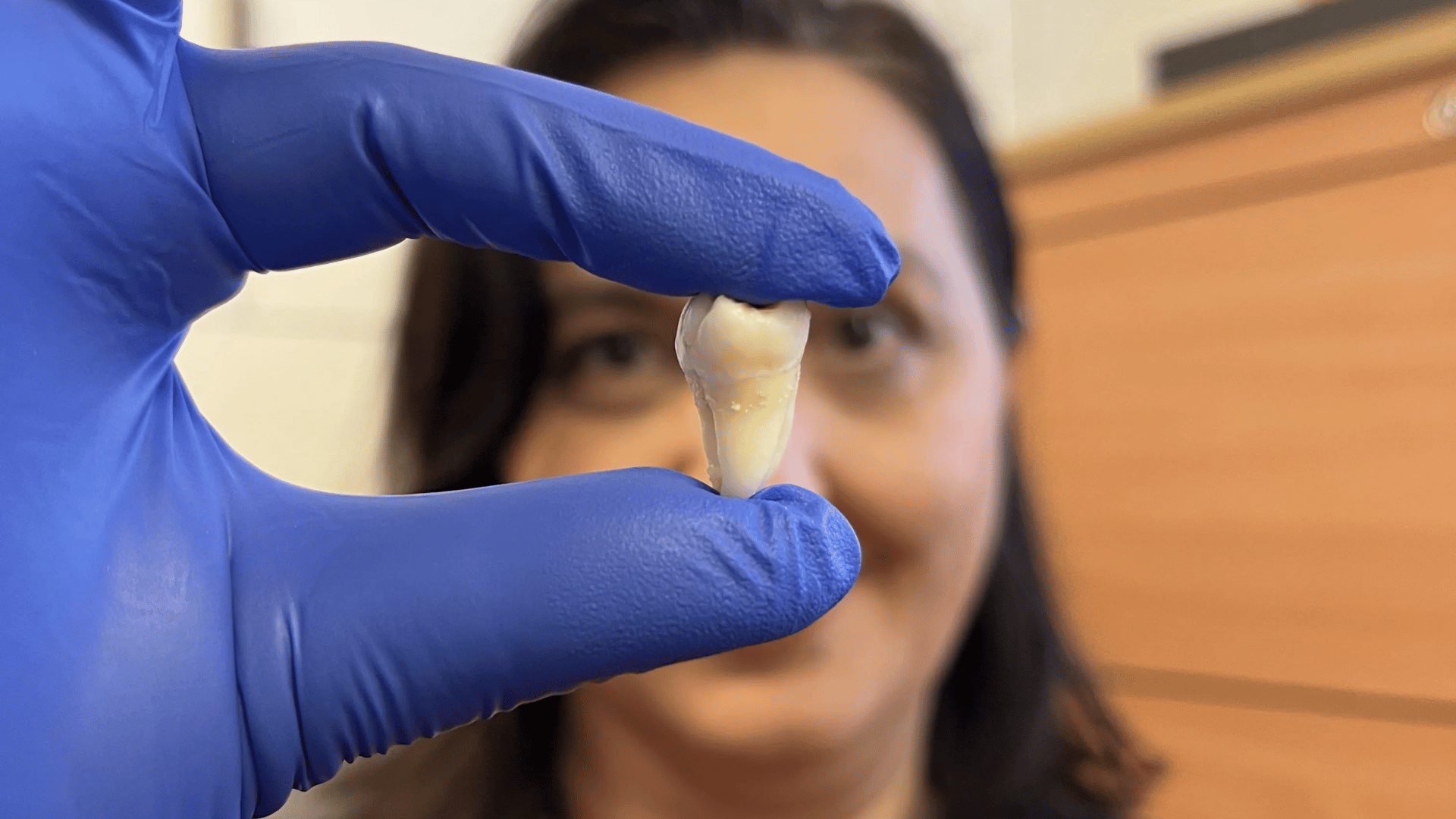Scientists at King’s College London have discovered a new way of growing living human teeth, a technique that could one day replace fillings and artificial implants.
Bioengineered Teeth

In the new study, the King’s College London team worked alongside Imperial College London to mimic the natural conditions necessary for early tooth development. They used a special material that allowed cells to communicate with each other and send signals to grow into tooth cells.
Bioengineered teeth could one day be a more natural and durable solution for modern dental fixtures. Whereas fillings gradually weaken tooth structure, and implants require invasive surgery, growing real teeth could restore the natural function of teeth without the long-term complications associated with other methods.
“We developed this material in collaboration with Imperial College to replicate the environment around the cells in the body, known as the matrix. This meant that when we introduced the cultured cells, they were able to send signals to each other to start the tooth formation process,” Xuechen Zhang from King’s College London’s Faculty of Dentistry, Oral & Craniofacial Sciences, said in a release.
“Previous attempts had failed, as all the signals were sent in one go. This new material releases signals slowly over time, replicating what happens in the body.”
Since researchers have seen success in recreating tooth-growing conditions, the next challenge will be finding a way to transfer the lab-grown teeth into patients’ mouths.
“We have different ideas to put the teeth inside the mouth. We could transplant the young tooth cells at the location of the missing tooth and let them grow inside the mouth. Alternatively, we could create the whole tooth in the lab before placing it in the patient’s mouth. For both options, we need to start the very early tooth development process in the lab,” stated Xuechen.
This new study is part of a larger movement called regenerative medicine, which involves finding ways to use biology to replace damaged tissues rather than artificial parts.







